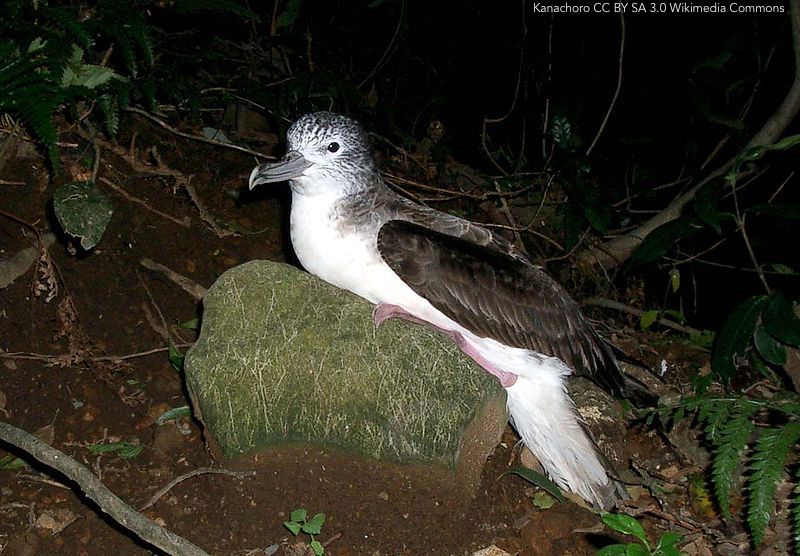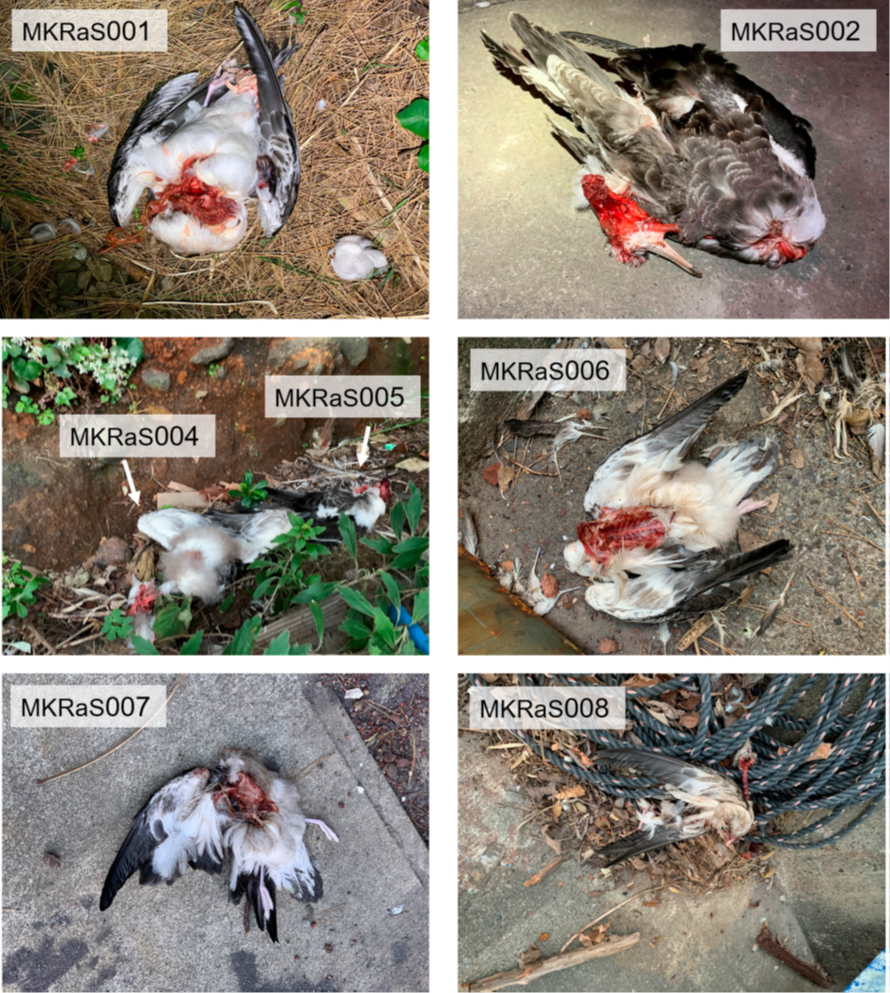
A Streaked Shearwater at night in a breeding colony
Junco Nagata (Forestry and Forest Products Research Institute, Ibaraki, Japan) and colleagues have published in the journal Mammal Study on identifying predators of Streaked Shearwaters Calonectris leucomelas by genetic analysis.

"The conditions of the Streaked Shearwater carcasses found in this study"; from the publication
The paper’s abstract follows:
“The domestic cat Felis silvestris catus is known to be one of the most notorious invasive alien predators. Seabirds are typical taxonomic groups that have been impacted by free-ranging cats on islands, and their headless carcasses are frequently observed. We conducted genetic predator identification of the carcasses of streaked shearwater Calonectris leucomelas and described their characteristics on Mikura Island, Japan, where free-ranging cats were blamed for the recent rapid decline of the shearwater population. Eight carcasses of streaked shearwaters were found in the survey. Genetic analysis of swab samples from scarred tissues of the carcasses detected cat DNA and identified cat predation on six out of eight carcasses. All six cat-positive carcasses were headless or almost headless with the head and body faintly connected by esophagus and trachea, several of which were missing their intestines. We describe the conditions of these headless carcasses, noting the main characteristics that could lead to suspicion of cat predation. To the best of our knowledge, this is the first genetic predator identification using seabirds, and may make more stakeholders aware of the reality of cat predation worldwide. On Mikura Island, we expect that this evidence will contribute to the development of systematic cat management.”
Reference:
Nagata, J., Haga, A., Kusachi, Y., Tokuyoshi, M., Endo, H. & Watari, Y. 2022. Cats were responsible for the headless carcasses of shearwaters: evidence from genetic predator identification. Mammal Study 47(3) : 1-8. doi:10.3106/MS2021-0047.

 Español
Español  English
English  Français
Français